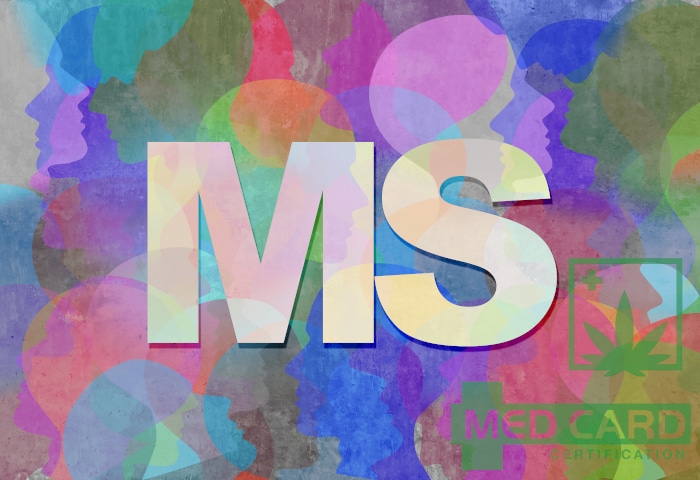
Cannabis | Naturally Helping with MS, Multiple Sclerosis
How Medical Marijuana May Help Patients With Multiple Sclerosis
- It is estimated that 350,000 people in the United States are living with multiple sclerosis (MS), a disease of the central nervous system.
- MS is the most common debilitating neurological disease in the U.S. Currently there is no known cure.
- Medical marijuana shows promise as an effective treatment for this debilitating and sometimes fatal condition.
Research on Medical Marijuana for Multiple Sclerosis
Numerous case studies, surveys, and double-blind studies suggest that MS patients can benefit from treatment with cannabinoids.
A 1998 House of Lords report went so far as to say, “We have seen enough evidence to convince us that a doctor might legitimately want to prescribe cannabis to relieve the symptoms of multiple sclerosis and that the criminal law ought not to stand in the way.”
Another study done in the UK in 2005 found that 43 percent of MS patients surveyed claimed to use cannabis therapeutically. Nearly three-quarters of these patients claimed that it reduced their spasms, and more than half claimed that medical marijuana reduced their pain.
A Canadian study undertaken in August 2003 found similar results. The report, which was published in the Canadian Journal of Neurological Sciences, claimed that 96 percent of patients surveyed believed that cannabis was helpful in reducing their symptoms. The authors state in their report, “This is an exciting time for cannabinoid research. There is a growing amount of data to suggest that cannabis (marijuana) can alleviate symptoms like muscle spasticity and pain in patients with MS.”
In actual Phase III clinical trials undertaken by GW Pharmaceuticals, a cannabis-derived drug known as Sativex proved to be superior to a placebo at reducing pain and spasm frequency. In April 2005, the company received approval in Canada for the use of Sativex in treating Multiple Sclerosis.
Researchers are also looking at the potential of cannabis in slowing the progression of neurodegeneration. The American MS Society called one study “interesting and potentially exciting.” The data demonstrated that cannabinoids did, indeed, slow the progression of the disease in mice. Researchers at the London’s Institute of Neurology reanalyzed the data and concluded, “In addition to symptom management, cannabis may also slow down the neurodegenerative processes that ultimately lead to chronic disability in multiple sclerosis and probably other diseases.”
Multiple Sclerosis is an autoimmune disease.
MS is an autoimmune disease. In MS patients, the immune system mistakenly attacks and damages the protective covering around nerve fibers. As the disease progresses, symptoms develop such as pain, involuntary movement, muscle spasticity, and tremors.
A number of research studies have shown that cannabinoids, the active ingredients in cannabis helps MS, having the ability to slow the progression of the disease and reduce its symptoms.
Pharmaceutical Treatments & MS
Drugs currently prescribed for MS have been shown to cause patients to become dizzy or lightheaded. They also increased risk of unconsciousness and death, especially when taken with alcohol. They are also known to cause slurred speech, clumsiness and unsteadiness. Additional side effects include abdominal pain, blurred vision, reduced sexual drive, constipation or diarrhea, trembling and others. Furthermore, lab studies have shown that two common MS drugs, clonazepam and diazepam, can cause birth defects or other problems in lab animals.
Cannabis & MS
The side effects of cannabis are typically mild in comparison. Aside from short-term effects such as euphoria, reduced motor skills and a decline in cognitive abilities, long-term negative effects from the use of medical cannabis seem to be rare.
As a result all the encouraging research and the vast numbers of MS patients claiming that cannabis helps to reduce their pain and other symptoms, a number of U.S. states have added MS to their list of conditions which qualify residents for access to medical marijuana.
Still, more research is needed to determine exactly how treatment with cannabinoids can help MS patients as well as how to maximize those benefits.
Most Effective Marijuana Strains for MS
There are a number of strains which pop up in multiple online lists of the best marijuana strains for MS. These tend to be sativa strains, however, strains which have been bred to be high in CBD are also recommended.
Some commonly recommended marijuana strains for MS:
- Critical Mass
- Sour Diesel
- Super Sour Diesel
- White Rhino
- Raspberry Cough
All of the above-mentioned strains are high in THC falling somewhere between 15 and 25%. However, go easy with the Super Sour Diesel as is claimed to produce a whopping 26% to 32% THC.
There is also a high CBD strains known as One to One that comes highly recommended and has equal amounts of THC and CBD (14% of each). CBD is known to lessen the anxiety-inducing effects of cannabis while offering greater neuroprotective properties and reducing short-term memory loss that can come with THC-rich cannabis.
If these strains are not available from the local dispensary it is recommended that patients discuss their needs with a knowledgeable budtender for recommendations.
How To Get a Medical Marijuana Card for MS

Sign Up for Medical Cannabis Today!
For potential patients, if you’re ready, we make it easy to connect with a medical marijuana doctor nearby or online. If you are interested in getting certified, please fill out the MMJ patient registration form below and press submit to get started. See if you qualify today!

MedCard Registration Form















